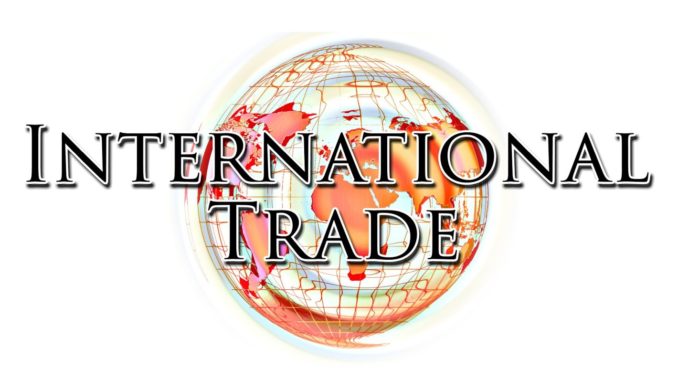
The Trump administration drew strong reactions from the international community on Thursday as it gets set to impose tariffs on key trading partners, including Canada, Mexico, and the European Union.
With friction over international commerce mounting back in April as a result of President Trump’s worldwide tariffs on steel and aluminum, the White House had granted a temporary exemption postponing the tariffs on Canada, Mexico, Brazil, Argentina, Australia, and the EU.
The exemption provided that, in lieu of tariffs, countries exporting steel and aluminum to the United States would have to agree to quotas protecting these industries in the United States. With the exception of South Korea, who accepted a permanent waiver in March in exchange for lowering its exports of steel to the US by 30%, the countries involved would once again face the threat of trade restrictions when the exemption expires. It is set to do so after midnight Friday morning.
United States Secretary of Commerce Wilbur Ross, a longtime Democrat and steel magnate who has expressed admiration for China’s use of Five-year plans, commented on CNBC on Thursday morning that discussions regarding trade have not yet progressed “far enough to justify another postponement or exemption.”
When the waiver expires, the countries exempted from Trump’s tariffs will be met with a 25% and 10% tax on imported steel and aluminum, respectively.
Unsurprisingly, affected countries have already begun to make their concerns known. The EU, America’s biggest trading partner, warned in April that
if it is subject to tariffs on the €6.4bn ($7.7bn) worth of the metals it exports annually to the US, it will retaliate with its own tariffs on €2.8bn ($3.4bn) worth of US goods imported into Europe including Harley-Davidson motorcycles, Levi’s jeans and Kentucky bourbon.
The EU maintained this position on Thursday, pointing to a 10-page list of items targeted for retaliation it published in March. The list focuses on items produced in strategic political states, such as bourbon from Senate Majority Leader Mitch McConnell’s home state of Kentucky, cranberries from House Speaker Paul Ryan’s home state of Wisconsin, and products from swing states such as oranges from Florida and tobacco from North Carolina.
Jean-Claude Juncker, president of the European Commission, insisted that “This is protectionism, pure and simple,” contending instead that the problems with the global steel market was due to the metal’s overabundance. “By targeting those who are not responsible for overcapacities, the US is playing into the hands of those who are responsible for the problem,” Juncker explained, referring obliquely to China. EU leaders have also vowed to proceed with legal actions against the tariffs via an appeal to the World Trade Organization.
Mexico’s Ministry of Economy released a statement condemning the move and promising retaliation:
Mexico deeply regrets and rejects the decision of the United States to impose these tariffs on imports of steel and aluminum from Mexico as of June 1, under the criterion of national security.
Mexico will impose equivalent measures to various products in the face of US protectionist measures.
Mexico has repeatedly indicated that this type of measures under the criterion of national security are not adequate or justified.
Steel and aluminum are inputs that contribute to the competitiveness of several strategic and highly integrated sectors in North America, such as automotive, aerospace, electrical and electronic, among others. Mexico is the main buyer of aluminum and the second of steel in the United States.
Mexico reiterates its position against protectionist measures that affect and distort international merchandise trade.
(Translation courtesy of Google Translate)
The Mexican government also said it would impose retaliatory measures against US exports of “flat steel, lamps, pork products and prepared meat products, apples, grapes, cranberries and cheeses,” according to The New York Times.
Canada, meanwhile, has said it would counter with dollar-for-dollar tariffs of its own, “with duties of up to $16.6 billion on some steel and aluminum products and other goods from the U.S. — including beer kegs, whisky, toilet paper and ‘hair lacquers,’” according to the Canadian Broadcasting Corporation.
“This is the strongest trade action Canada has taken in the post-war era. This is a very strong response, it is a proportionate response, it is perfectly reciprocal,” Canadian Foreign Affairs Minister Chrystia Freeland told reporters on Thursday.
The stock market plunged with the news on Thursday, dropping well over 200 points. Secretary Ross, however, dismissed any concerns with the plummet, opining on CNBC that “A 170-[point decline] is not very cataclysmic in any event. Naturally, if the market, to the degree it was surprised, it’ll have to adjust to that. But markets adjust to facts.”
Why It Matters
The US is currently in talks with Canada and Mexico to renegotiate NAFTA, so aggressive moves like these against fellow member nations is a very reckless way of endangering ties with the leading importers of American goods.
Also, retaliatory actions targeting items from key political battleground states spells major trouble for the GOP during an already-heated midterm season.
And importantly, the White House just announced its plans to slap tariffs on $50 billion of Chinese goods, which just adds to the likelihood of retaliation on American exporters as well as further limiting options for trading partners.
America is trying to retool NAFTA, acquire China’s cooperation in dealing with North Korea, and secure the assistance of EU in matters pertaining to the Iran Deal. Trump’s actions here, if he is not careful, will not only sabotage all those efforts, but will also inevitably lead the United States into a trade war right in the middle of a very volatile moment in global relations.
